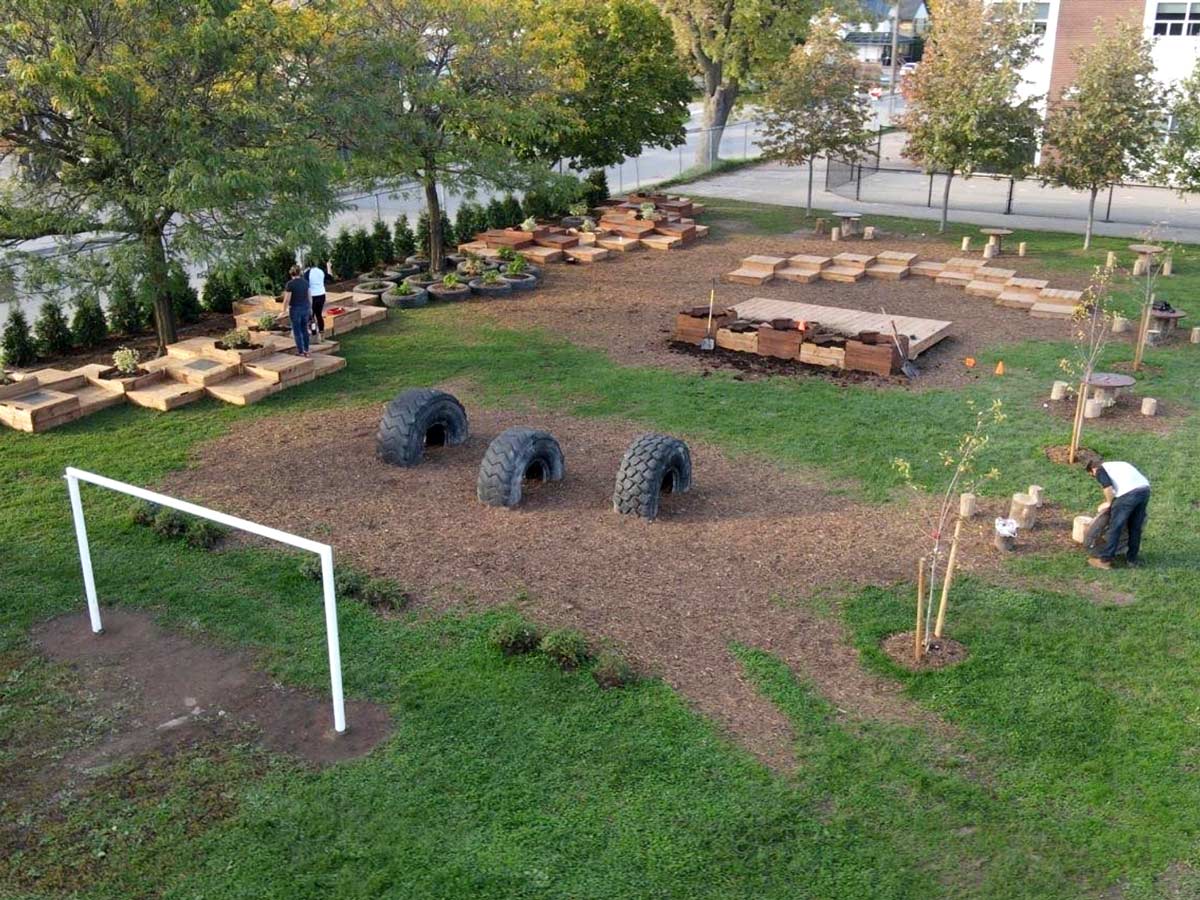Supporting social connection in the schoolyard

The redesign of the schoolyard of St. Patrick Catholic Elementary School in Niagara Falls was based on the research of Lauren McNamara of the Diversity Institute.
Recess is more than a chance to get outside during the school day – research has found it is important for students’ social experiences, and schoolyard design can impact how they play and connect with other children. A recent playground renovation at an elementary school in Niagara Falls, Ont., was built based on the work of Diversity Institute researcher Lauren McNamara.
With a doctorate in educational psychology, her expertise on supporting children’s social connection and belonging in the school community was put into practice at St. Patrick Catholic Elementary School, where the schoolyard has been revitalized with upcycled and natural materials to offer a diverse array of activities that encourage play and social connections.
Founder of The Recess Project and a member of the Royal Society of Canada’s Working Group on Children and Schools, research associate McNamara said she worked with the students of St. Patrick Elementary to explore their concerns, challenges, needs and preferences for the schoolyard. The resulting design is an extension of her previous research and the input from the children. She said many schoolyards across North America are quite barren and do not encourage the kinds of healthy socialization and physical activity kids need.
“We came up with three design priorities,” she said. “The first was to increase engagement by providing a variety of options that appeal to children of all ages and stages. The second was to find thoughtful ways to increase social connection. And third was to be ecologically sensitive.”

The new playground features include chessboards and planters.
To facilitate social engagement, the design created zones that encourage a variety of activities, whether it is clamouring over recycled tractor tires, engaging in creative play on a wooden stage or playing a game of chess on an upcycled board in a small, quiet garden area. Ashoka Fellow McNamara says this helps account for different children’s preferences rather than having just one play structure, which can get crowded, or having none available at all. “This kind of helps the flow of movement and play, and keeps kids interested by going from area to area.”
Recess is a critical time for young people to connect with or make friends in an unstructured way, she says. And for many children, particularly those in dense or low resourced neighbourhoods, it may be the only time in the entire day. “This need that we have for acceptance and belonging, if you’re hungry for that it’s difficult to learn effectively,” she said. She adds that kids are more likely to be active if they have a friend to play with – and increased activity has positive impacts on their well-being and their schooling. “How can we support them in this space? All of the research indicates that what happens in this space will cascade into school engagement, school climate, academic success, feelings of belonging, well-being, all of these provide the foundation for healthy learning,” she said.
While the pandemic delayed her from formally researching the revitalized playground’s success, she’s heard that the changes adopted from her recommendations have been well-received not only by students, but by the staff who are using it for outdoor learning and local families who use the schoolyard after school and on the weekends. Research associate McNamara plans to begin followup work in the spring of 2022.
(PDF file) Read the Royal Society of Canada’s report on Children and Schools During COVID-19 and Beyond: Engagement and Connection Through Opportunity, (opens in new window) for which McNamara wrote a chapter on recess.
Learn more about The Recess Project (external link, opens in new window) .